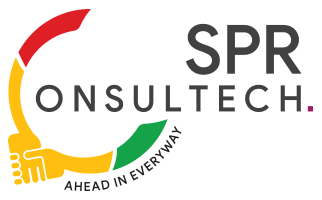Artificial Intelligence is revolutionizing industries globally by offering unparalleled prospects for growth and expansion. The increasing integration of AI technology into business and daily life necessitates the establishment of extensive regulation and governance to ensure they are used responsibly and ethically, therefore building and sustaining digital trust is even more important. This urgency is felt everywhere, including in India, where there is both celebration and scrutiny of AI’s transformational potential.
The Multifaceted Nature of AI
Artificial Intelligence (AI) involves a wide range of technologies, each with distinctive functionalities and unique uses. AI is thrusting for innovation in numerous areas, including machine learning algorithms, computer vision, and natural language processing. Our lives are being made easier by the comfort, flexibility, and breakthroughs made by AI, but it also brings with it numerous new challenges that require careful regulation.
An excessive dependence on AI that diminishes human oversight, data privacy concerns, biases that might result in discriminatory outcomes, and a lack of transparency in AI models are a few worries regarding AI. Further raising major security concerns is the possibility that AI systems will be used maliciously for things like unapproved surveillance or cyberattacks. Given these dangers, it is imperative that laws and regulations take into account the security and ethical aspects of artificial intelligence.
Regulations, Rules & Frameworks are required to address concerns associated with AI like:
- Define nature of risks
Categorize like unacceptable, high, etc.
- Address risks specifically created by AI applications
- Prohibit AI practices that pose unacceptable risks
- Determine a list of high-risk applications
- Require a conformity assessment before a given AI system is put into service or placed on the market
- Set clear requirements for AI systems for high-risk applications
- Define specific obligations deployers and providers of high-risk AI applications
- Put enforcement in place after a given AI system is placed into the market

Global Frameworks and India’s Regulatory Path
Numerous nations are creating and enforcing legislative frameworks to control AI in response to these issues. The AI Act of the European Union is notable for being a trailblazing and all-encompassing approach, classifying AI systems according to their risk profiles and enforcing strict regulations for high-risk applications. To guarantee that AI systems function safely and equitably, this includes requirements for openness, risk assessments, and frequent audits. In a similar vein, other authorities are developing laws that prioritize accountability, data privacy, and ethical standards, demonstrating a growing agreement on the necessity of strict regulation. India is also heavily involved in developing its regulatory framework for AI. INDIAAI was founded by the Ministry of Electronics & Information Technology (MEITY) with the goal of creating a holistic ecosystem that supports AI innovation by assuring socially significant AI projects, guaranteeing ethical AI, democratizing computer access, improving data quality, creating domestic AI capabilities, drawing top AI talent, facilitating industry collaboration, and providing startup risk capital. SAFE & TRUSTED AI is one of INDIAAI’s seven pillars of operation.
Presently, India lacks a dedicated regulation for AI, but instead, it has established a series of initiatives and guidelines aimed at the responsible development and deployment of AI technologies. Some are given below:
- National Artificial Intelligence Strategy (2018),
- Principles for Responsible AI (Feb 2022),
- Principles for Responsible AI (Aug 2021), are some of the papers presented by NITI Aayog, which serves as the apex public policy think tank of the Government of India in the policy-making.
- Digital Personal Data Protection Act, 2023, was signed into force by the President of India on August 11, 2023.
- The Information Technology Rules (Intermediary Guidelines and Digital Media Ethics Code), 2021 (IT Rules 2021)
- The MEITY released the draft National Data Governance Framework Policy (NDCFP) on May 26, 2022.
- At present, various provisions within existing legislation offer both civil and criminal remedies. For instance, Section 66E of the Information Technology Act, 2000, addresses deepfake crimes related to privacy violations.
- Due diligence advisory for AI intermediaries and consequences for non-compliance issued on March 15, 2024, by MEITY announced a new advisory, replacing the previous advisory eNo.2(4)/2023-CyberLaws-3 from March 1, 2024. This advisory must be read with advisory No. 2(4)/2023-CyberLaws dated December 26, 2023, and highlights concerns regarding intermediaries and platforms, noting their frequent neglect of due diligence obligations outlined in the IT Rules 2021.
Implementing an Effective Regulatory Framework
Developing an effective regulatory framework for AI requires collaboration among policymakers, industry leaders, technologists, and risk consulting professionals to create guidelines that ensure AI systems are trustworthy, transparent, and ethically managed.
Pillars to consider:
- Transparency
AI systems need to provide a detailed explanation of how the decisions are made. - Accountability
Businesses oversee ensuring that their AI systems behave morally. - Data privacy
To safeguard user information and uphold confidence, strong safeguards are essential. - Risk management
Include ongoing monitoring, frequent audits, and changes to counter new risks.
The regulatory strategy must be adaptable, allowing for the advancement of technology while upholding public confidence and promoting responsible innovation. To sum up, creating such a framework is crucial to promoting digital trust and guaranteeing that AI technologies be applied morally and responsibly, advancing society while preserving core principles. Navigating the intricacies of this revolutionary technology will require constant cooperation and regulatory adaptation as AI develops.
About the Author
Ravishankar is a Chartered Accountant with a CISA certification and a commerce degree from the University of Madras. With over 15 years of post-qualification experience in Risk Assurance and Audit, spanning across top global consulting firms, he takes the role of Chief Operating Officer delivering quality and innovation in our solutions.

